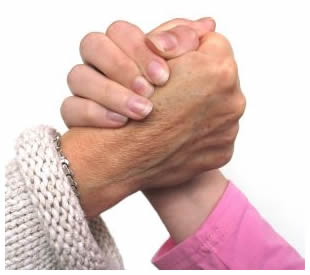 As the saying goes, we can’t choose our family, but we can choose our friends. But what if we have chosen a toxic friend? One that seems like a friend, but is subtly undermining us on a regular basis. Learning to spot these people early in the relationship can save a lot of heartache in the long-term.
As the saying goes, we can’t choose our family, but we can choose our friends. But what if we have chosen a toxic friend? One that seems like a friend, but is subtly undermining us on a regular basis. Learning to spot these people early in the relationship can save a lot of heartache in the long-term.
So, what are the warning signs of a friend who is not really a friend? Watch out for these common threads:
• They have usually known you “forever” and know a lot about you and use that information to undermine your confidence and self esteem.
• The methods they use are subtle. They would never dream of telling you that your new hairdo is a disaster. They are more likely to show “concern” by saying something like: “Wouldn’t you think the hairdresser would be skilled enough to realize that a fringe emphasizes the size of your nose!”
• They use subtle forms of “toxic language.” So subtle that it can go unrecognized by you. Yet over time, contact with this person leaves you with a vague sense of feeling bad about yourself.
Another classic example is statements such as: “You look pale, do you feel all right?” To the outside listener, it all sounds warm and fuzzy, but the systematic use of such put-downs will, over time, seriously lower your feelings of self-esteem.
• The consistent use of backhanded compliments. For example: “At least you know it’s because you’re intelligent that guys aren’t attracted to you.”
• They often remind you of embarrassing moments in your life, yet are sparse with genuine compliments. They also focus on your personal appearance, including clothes, weight, make-up, and hair.
• They dictate the course of the conversation, but when you steer the subject around to yourself, your interests, and your problems, suddenly it’s time for them to go.
• At times they can seem so understanding and supportive, which lulls you, the victim, into a false sense of security, making you feel that you have imagined all the subtly hurtful comments. At these times, you feel good about the relationship.
Toxic underminers are mistresses of the delicate dig. In some cases, the toxic friend can do extreme damage emotionally, verbally, and at times, even physically.
The reason a person stays with a toxic friend is that they have a low sense of self-worth, plus they fear that if they stand up to the person, they will be abandoned. This latter point is a well-grounded fear. If you no longer “play the game,” the toxic friend will seek out others and drop you. They need a softer target in order to prop up their own flagging self-esteem. So, by standing up to these foes who appear to be friends, in reality you are losing nothing and gaining self-esteem.
Becoming aware of your feelings when you are around these people is the first step in freeing yourself from these destructive relationships. Once you acknowledge your own part in “the dance,” and that is, your silent acceptance of the situation, you can start to take the first steps in removing yourself from harm and finding truly supportive friends.
Related articles:
Contact Beth McHugh for further information or assistance regarding this issue.

